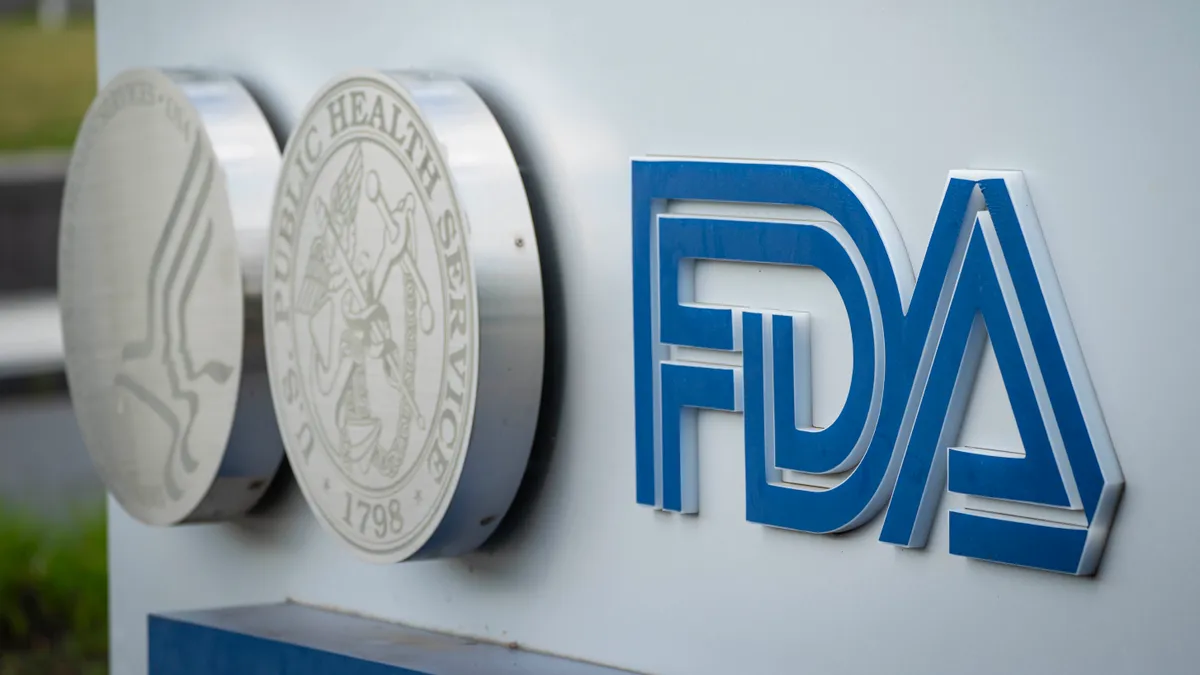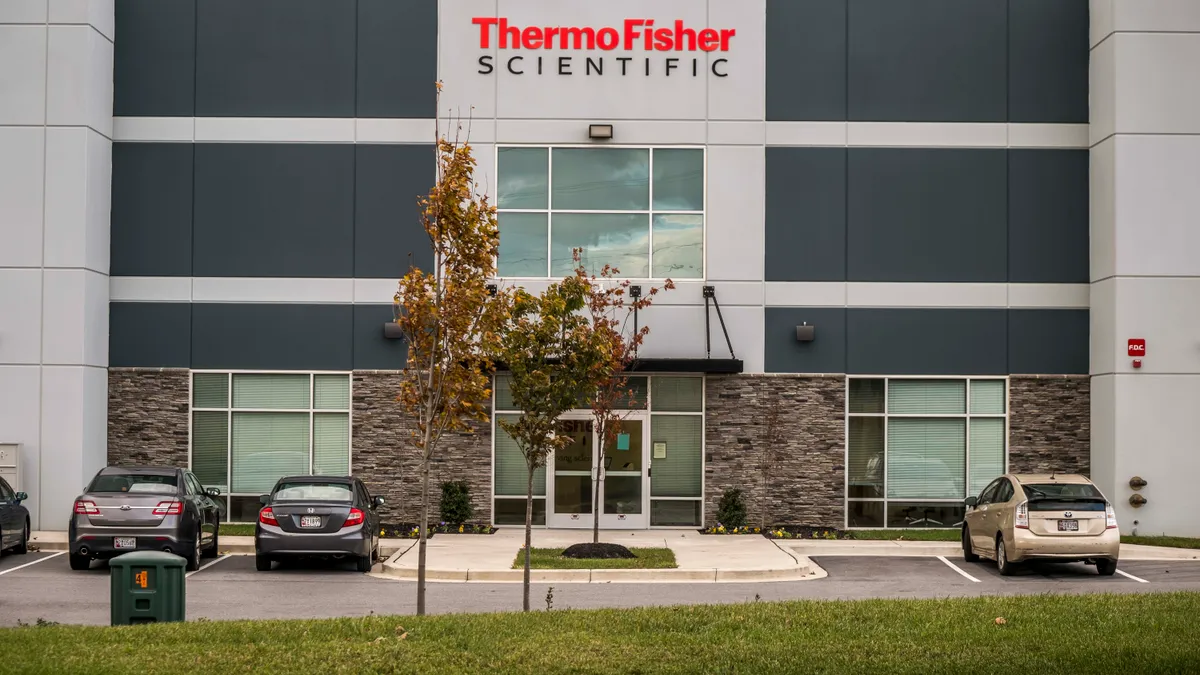Dive Brief:
- FDA's Circulatory System Devices Panel is meeting Tuesday to discuss the benefit-risk profile of Endologix's treatment for abdominal aortic aneurysms amid concerns about the frequency of endoleaks.
- In materials released ahead of the event, FDA said the rate of Type III endoleaks associated with Endologix's AFX system appears to be higher than expected, although it acknowledged the limitations of the data. Endologix is set to defend the safety of the current iteration of its device.
- An earlier version of the device was pulled from the market amid concerns about the rate of endoleaks. Endologix will argue its changes resolved the problem but FDA has doubts about whether the actions were sufficient, leading it to convene the advisory committee.
Dive Insight:
Endologix, competing for a market targeted by companies including Cook Medical and Medtronic, pitches its endovascular graft treatment as the best option in some patients, pointing to the lower operative time and advantages in people with narrowed iliac access to make its case. However, the product line has faced problems. Endologix removed AFX Strata from the market in 2016 because of Type III endoleaks and failed to fully quash concerns with its two follow-up devices.
The company cited deferred procedures amid the pandemic when it filed for Chapter 11 bankruptcy last year, moving to become a privately-held company.
In its presentation to the committee, FDA will present an analysis of complaint data on the last three main iterations of the device: Strata, Duraply and AFX2. The rate of Type III endoleaks in recipients of Strata, the oldest device, is higher from the first year after implementation onward. FDA will argue the complaint curves for Duraply, which is no longer sold, and the current iteration AFX2, overlap.
FDA has six years of data on Duraply and four years on AFX2. One concern is that the rate of Type IIIa endoleak complaints in recipients of Strata increased “substantially” six years after implant. Similar long-term data are not yet available for Duraply and AFX2.
In the absence of long-term data, Endologix's case for the safety of AFX2 beyond six years rests on the changes it made to mitigate the endoleak risk. All the devices share a unibody configuration and manufacturing materials. However, after Strata Endologix changed the graft material manufacturing method, graft material thickness and delivery system. FDA will use its presentation to express doubts about whether the changes to AFX2 have addressed the endoleak concerns.
Endologix will argue that AFX is more than a physical implant. Rather, the combination of the implant and delivery system, the manufacturing process and product labeling differentiate the devices and impact their performance. As Endologix sees it, changes to the various elements have addressed the long-term durability concerns with Strata and clinical evidence on 3,000 patients supports that view. Endologix will also argue the AFX benefit-risk profile is comparable to that of rival devices.
The advisory committee will influence what happens next. FDA will discuss risk-mitigation strategies ranging from labeling changes and additional data collection, up to the voluntary recall of the device or the withdrawal of premarket approval. The advisory committee will give its views on Tuesday and Wednesday when FDA asks the experts to discuss a series of questions.
On Tuesday, the panel will discuss key questions including whether the benefits of AFX2 outweigh the risks. The questions on Wednesday are broader, with FDA encouraging discussion of the safety and effectiveness of endovascular grafts and the surveillance of recipients of the devices.
Safety concerns have also hit other companies in the space. In February, Medtronic recalled certain Valiant Navion Thoracic Stent Graft System devices due to the potential of patient harm. The FDA labeled the recall a Class I event in April, writing in the public notice that after device implantation, patients "may experience stent ring enlargement beyond design specification, stent fractures, holes in the graft fabric (Type III endoleaks), life-threatening bleeding, aortic rupture, or death."
The recall affected 14,237 devices.











